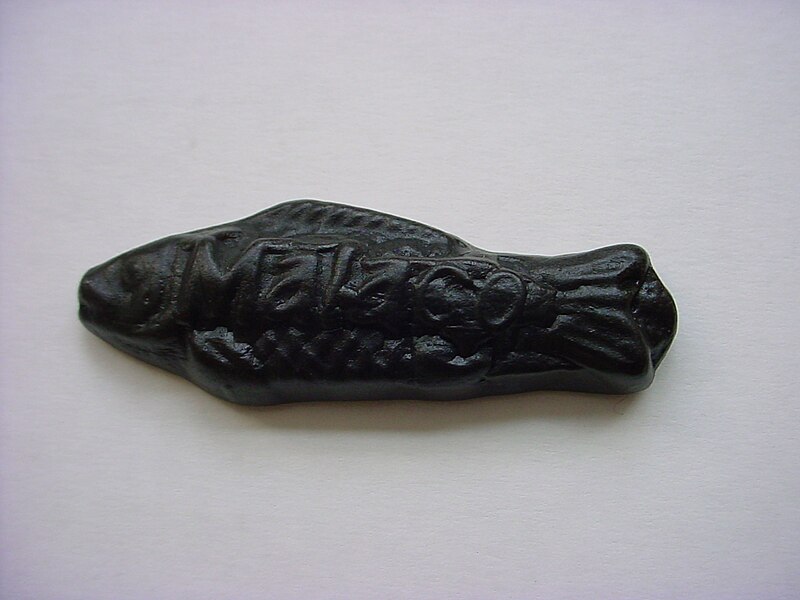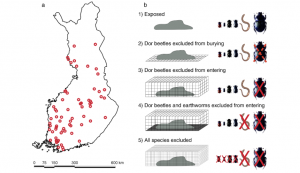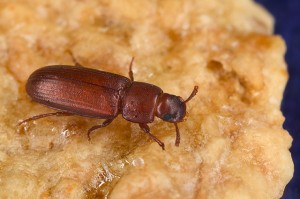Since arriving in Oxford, I've been trying out a few new things. I've been rowing with a college squad, attending different cultural events including ballets, and have become particularly fond of a slew of uniquely British foods (Cream tea anyone?).
One incredibly rewarding aspect of student life that I have become involved with is science communication. I've taken a position doing online pieces for Bang Science - a student run, 'graphically gorgeous' science-media publication. It's been a lot of fun, and am delighted with the unexpected, and overwhelmingly positive response to my pieces! Unfortunately, it did distract a bit from my personal blogging - but I did want to take a moment to link to some of my recent posts. It's a different sort of flavour, but it's a medium that allows me to creatively communicate science to a wider audience.
I've linked to each of my articles published so far. The Online Editors are introducing a special arthropod section for my posts - which is also very exciting. If you've got a minute, please considering clicking on through the articles to learn something new!
Invasive Ladybirds Escape Parasitism
This piece looks at an invasive species that is creeping across the UK, and many other parts of the world. Poor rates of parasitism by natural enemies seems to be a causing factor. Richard Comont - a member of my lab group lead this very interesting study. If you're looking for any information about UK insects, or any other sort of wildlife - Richard is a fantastic wealth of knowledge. His website can be found here.
Seven Facts About The Worlds Most Festive Ungulates
Whether you call them caribou, or reindeer - people throughout the world are familiar with this charismatic deer. Have a read to discover some strange and wonderful facts about Donner, Blitzer, and the rest of the ol' gang.
No Job Too Dirty: A Peculiar & Resourceful Ecological Niche
The Sexually Confusing Lives of Male Insects
One incredibly rewarding aspect of student life that I have become involved with is science communication. I've taken a position doing online pieces for Bang Science - a student run, 'graphically gorgeous' science-media publication. It's been a lot of fun, and am delighted with the unexpected, and overwhelmingly positive response to my pieces! Unfortunately, it did distract a bit from my personal blogging - but I did want to take a moment to link to some of my recent posts. It's a different sort of flavour, but it's a medium that allows me to creatively communicate science to a wider audience.
I've linked to each of my articles published so far. The Online Editors are introducing a special arthropod section for my posts - which is also very exciting. If you've got a minute, please considering clicking on through the articles to learn something new!
Invasive Ladybirds Escape Parasitism
This piece looks at an invasive species that is creeping across the UK, and many other parts of the world. Poor rates of parasitism by natural enemies seems to be a causing factor. Richard Comont - a member of my lab group lead this very interesting study. If you're looking for any information about UK insects, or any other sort of wildlife - Richard is a fantastic wealth of knowledge. His website can be found here.
.jpg/800px-Ladybird_with_a_parasitoid_cocoon_(7211917770).jpg) |
| The ladybird Coccinella septempunctata with a parasitoid cocoon, probably of Dinocampus coccinellae (Braconidae). Photo by Giles San Martin |
Seven Facts About The Worlds Most Festive Ungulates
Whether you call them caribou, or reindeer - people throughout the world are familiar with this charismatic deer. Have a read to discover some strange and wonderful facts about Donner, Blitzer, and the rest of the ol' gang.
 |
| Photo by Dean Biggins: Wikimedia Commons |
Some people have dirty jobs. Some insects also have dirty jobs. Some insects have jobs that are so down-right dirty, that you'll find yourself cringing. Uroxys gorgon fits that description to a 'T'. Dare to click through?
 |
| Uroxys gorgon (Arrow) – Photo by Trond Larsen |
What Candy Can Tell Us About Fisheries Management
This 'unorthodox' study simulated fisheries management through making a bowl of candy fish available to a group of hungry office mates.. Through secret monitoring, researchers found that the candy fish populations underwent some pretty strenuous pressures - but things became brighter when leaders emerged organically. Why not take a look?
This 'unorthodox' study simulated fisheries management through making a bowl of candy fish available to a group of hungry office mates.. Through secret monitoring, researchers found that the candy fish populations underwent some pretty strenuous pressures - but things became brighter when leaders emerged organically. Why not take a look?
 |
| Sugary snack, or model organism? Photo by Bishonen: Wikimedia Commons |
This piece is looking at my study organisms - dung beetles. It shows how through collaboration with citizen scientists, that valuable data can be collected. I've been inspired by this piece, and am already brainstorming ideas like this for when I (really hope work will be available) return to Nova Scotia for research upon completion of my PhD.
 |
| Figure by Kaartinen et al. 2013) |
Insects have never (rightfully) been known for their superior intelligence. However, insects are known for their ability to reproduce (rightfully). Sometimes these two tendencies tend to become intertwined, where males mistake other males for interested females. This post reviews a review of male-male sexual encounters in insects.
 |
| Red flour beetle - Photo by Peggy Greb: Wikimedia Commons |
A recent paleontologist study found two froghoppers coupled in a loving embrace.The fossil was so complete that the genitalia was discernible. The froghoppers seemed to take on a different position that extant species, however they do seem to be having sex with genetalia that has been mostly unchanged for over a million years.
Well folks, hope you enjoy the science blogging. I'll try to post links whenever a new piece comes out, which should be about weekly. Hope that your 2014 is off to a fantastic start!
PM
| Photographs of the froghopper fossils with accompanying diagrams. Scale bars = 1 mm. From Li et al., 2013; doi:10.1371/journal.pone.0078188.g001 |
Well folks, hope you enjoy the science blogging. I'll try to post links whenever a new piece comes out, which should be about weekly. Hope that your 2014 is off to a fantastic start!
PM


